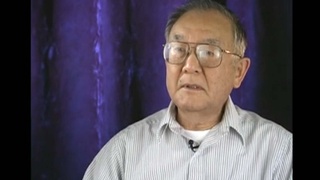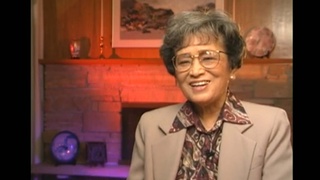Interviews
Bringing the Japanese American community together through class-action lawsuit
It (Commission) was essential, absolutely. First, from a purely informational viewpoint, then from an approach to the political aspect of it; it also bolstered the approach of the class-action lawsuit. It provided the grounds for the coram nobis cases.
What I see as one of the most important things that happened was within the Japanese American community itself. You’ve seen many stories. People had never talked to their kids about it. Now all of a sudden they found out, “Oh, my God! Other people felt guilt, other people felt hurt, other people felt betrayed. It wasn’t an act of God that took place, it was those bastards in Washington and in the Presidio that did this to us. They were men. They were men, but they were not men. They were not human beings! So we were being manipulated—we, the Japanese Americans were being manipulated.”
It wasn’t some event that couldn’t be explained, in terms that could be understood, in terms of political expediency, of prejudice, of economic interest, the Sons and Daughters of the Golden West, the Grange, the American Legion—all those bastards. This brought the Japanese American community together in a way that could never have [otherwise] taken place, no matter what. The class-action lawsuit, if that was won, that would’ve been great, but it would not have set up the dynamics that took place as a result of the hearings. Now we see that [the results] everyday.
Date: August 26, 1998
Location: Virginia, US
Interviewer: Darcie Iki, Mitchell Maki
Contributed by: Watase Media Arts Center, Japanese American National Museum










